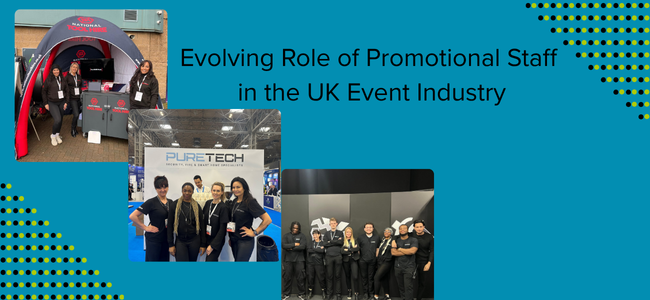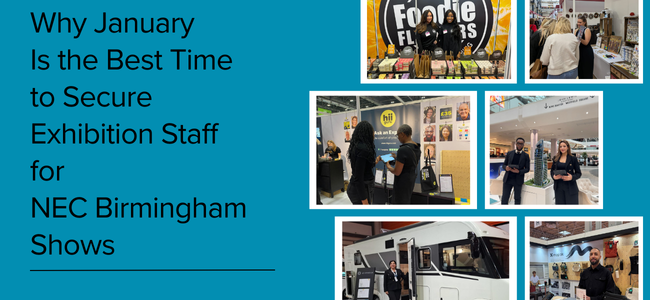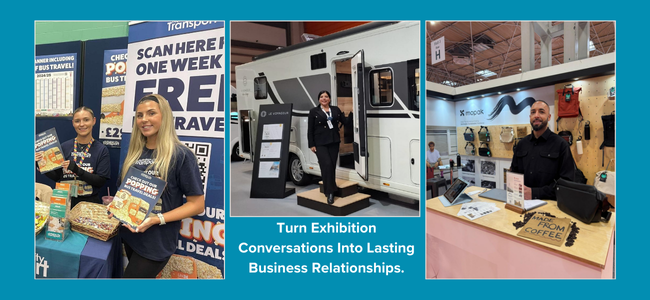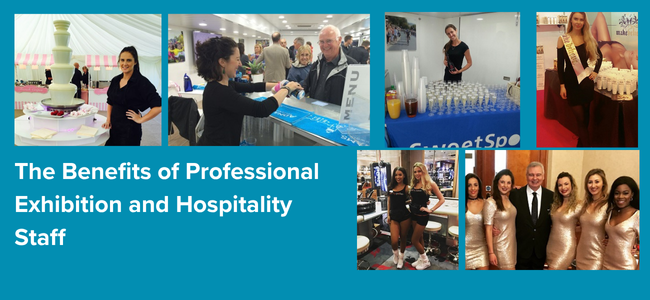Why January Is the Best Time to Secure Exhibition Staff for NEC Events The National…

The Evolving Role of Promotional Staff in the UK Event Industry
The Evolving Role of Promotional Staff in the UK Event Industry
The UK event industry has undergone a dramatic transformation in recent years, largely influenced by the pandemic, changing consumer expectations, and the rise of hybrid experiences. As a result, the role of promotional staff has evolved significantly—from purely face-to-face engagement to now encompassing digital support, technical know-how, and hybrid event interaction.
In this blog, we explore how the responsibilities, skills, and expectations of promotional staff have shifted post-COVID, and what that means for event organisers and brands in today’s dynamic market.
From Traditional Engagement to Modern Brand Representation
Traditionally, promotional staff were hired to attract attention at events, hand out marketing materials, collect leads, and create positive brand experiences through face-to-face engagement. Their roles were heavily dependent on physical interaction and high-energy communication in crowded environments.
However, in a post-pandemic landscape, where social distancing, technology, and hybrid events have become more common, promotional staffing has taken on a broader, more strategic role.
1. Supporting Hybrid and Virtual Events
Promotional Staff as Digital Hosts
With many events now taking place in hybrid formats—combining in-person attendance with live-streamed or virtual components—staffing needs have changed.
Promotional staff are no longer limited to the exhibition hall. Instead, they may now:
Act as virtual hosts or presenters for live-streamed sessions
Moderate online chat rooms and Q&A segments
Support technical teams with attendee onboarding
Engage with remote audiences via social platforms or webinars
This requires a new set of digital skills, including familiarity with platforms like Zoom, Teams, or Hopin, and the ability to remain personable and professional in a virtual space.
2. Increased Focus on Brand Knowledge and Soft Skills
Post-COVID, attendees are more selective about which events they attend and how they interact. As a result, the expectations for promotional staff have shifted.
They’re no longer just ‘faces on the stand’—they are brand ambassadors who must:
Understand a company’s mission and values
Communicate product benefits clearly and confidently
Be trained in customer service and conflict resolution
Handle sensitive interactions with professionalism
The demand for staff who are genuinely passionate, articulate, and brand-aware has grown substantially.
3. Health & Safety Awareness
In a world still recovering from the effects of COVID-19, event safety is top of mind for organisers and attendees alike. Promotional staff now play a vital role in:
Managing visitor flow to avoid overcrowding
Encouraging hand sanitiser use or mask-wearing (where required)
Explaining event safety protocols to guests
Monitoring capacity at booths or activations
In this sense, they act not only as brand representatives but also as frontline health and safety allies.
4. Data Capture and Digital Tools
Gone are the days of clipboards and business cards. Post-pandemic, event organisers are prioritising contactless interaction and digital lead capture.
Promotional staff are now expected to be confident using:
Tablets or scanning devices for contactless registration
QR code systems for brochures or product info
CRM-connected apps for real-time lead collection
Online feedback or survey tools
This not only enhances the visitor experience but also improves the quality and security of collected data.
5. Social Media and Real-Time Engagement
Promotional staff are increasingly being used as part of a company’s live event content strategy. Their roles may include:
Encouraging attendees to post on social media using campaign hashtags
Appearing in live Instagram or TikTok content
Helping facilitate influencer meet-and-greets
Creating shareable moments that align with the brand’s voice
Their role in driving digital buzz before, during, and after the event has become more valuable than ever.
6. Flexibility and Multi-Skilled Staffing
Today’s promotional staff often wear multiple hats. On any given day, one might:
Act as a brand ambassador during the morning rush
Help with social media content around lunchtime
Manage a live chat or online poll in the afternoon
Because events now operate across both physical and digital spaces, flexibility is a key requirement. Agencies and clients alike are looking for staff who can adapt quickly, stay calm under pressure, and handle a variety of tasks confidently.
What This Means for Event Organisers and Brands
The evolution of promotional staffing is not just about adapting to temporary changes. It reflects a long-term shift in how events are run, experienced, and measured for success.
To stay competitive in the UK’s rapidly recovering event sector, brands should:
Choose staffing partners who understand modern event needs
Brief promotional staff in both product knowledge and digital tools
Value soft skills, tech fluency, and adaptability in their team
View staff as part of the brand journey, not just an add-on
Looking Ahead: Smarter Staffing for Smarter Events
As hybrid and experiential events continue to shape the UK market, promotional staff will play an even more integral role. They are no longer just “extras”—they are the connective tissue between brand, audience, and experience.
Whether on the ground at a busy exhibition or online interacting with remote viewers, today’s staff are a reflection of your brand’s professionalism, energy, and values.


